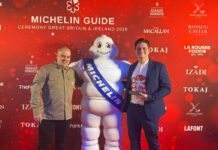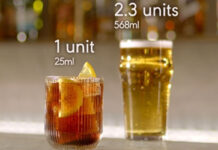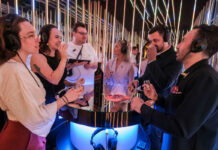As many customers in Scotland’s bars and pubs become more knowledgeable about the food and drink they’re ordering, there is a growing opportunity in stocking speciality products.
Drinks firms have argued that, with customers constantly on the lookout for something new and different, speciality spirits – whether served neat, in a shot or as part of a cocktail – can provide them with an experience they can’t get at home.
But knowledgeable staff are said to be crucial.

Jamie Williamson of distributor Marblehead – the firm behind Molinari sambuca and coffee liqueur Toussaint in the UK – said the growing focus on ‘craft’ products, in categories like beer and gin, was “starting to filter out into other types of spirits”.
“Consumers care about the story and people behind speciality brands,” said Williamson.But ensuring staff behind the bar are aware of the stories behind these products is “absolutely essential”, according to Williamson.
He advised licensees to call on their sales reps for training support in order to ensure staff are as clued-up as possible.
The importance of knowledgeable staff was reinforced by Ashley Moore, category development manager at Diageo, the firm behind Pimm’s and Romana sambuca.
Moore said well-trained and enthusiastic staff are much more likely to generate sales for an outlet.
“Get your staff involved – it will fuel their interest in the drinks you serve and make them really feel part of the business,” said Moore.
“If your staff are inspired about what they’re serving, they will be able to make more engaging recommendations to customers, equaling more profit for your outlet.”
Knowledge is king with regard to making the most of speciality spirits, and while staff are arguably the most important medium for promoting a brand’s heritage and provenance to the customer, licensees should bear in mind that there are other ways to highlight the brands on the back-bar.
“Along with knowledgeable and well-trained staff, drinks menus, chalkboards, back-bar displays and other marketing support can help to ‘sell the story’ of speciality spirit brands to customers,” said Dan Bolton, managing director of Hi-Spirits, distributor of brands that include cinnamon liqueur Fireball and the Punt e Mes range of vermouths.
The category of ‘speciality spirits’ is a broad one, with a wide range of potential customers. But Bolton said that authentic, credible brands are as important across the board.
“Broadly, younger consumers are more likely to have a portfolio approach to drinking in the on-trade rather than a ‘usual’ bar call, so are more inclined to order speciality brands,” he said.
“However, authenticity is an increasingly important factor in many older consumers’ drinking choices, which has sparked a revival of interest in classic specialities.”
In addition to their provenance and history, versatility is said to be one of the main advantages speciality spirits have for pubs and bars.
And this is particularly important to those outlets with a young adult customer base, according to Jonathan Dennys, customer marketing and insight controller for Mast-Jaegermeister UK.
Dennys said that spirits have become increasingly popular with young adults in recent years.
“This is due to the current market being driven by experimental consumers who are looking to extend their drinking repertoires with new and exciting drinks – both mixed spirit-based drinks and shots,” he said.
“Recent data shows that neat shots have become significantly more popular with a ratio of 8:2 of mixed spirits to neat shots in 2009 compared with 7:3 in 2013, showing just how important it is to stock versatile spirits which lend well to both shots and long serves.”























